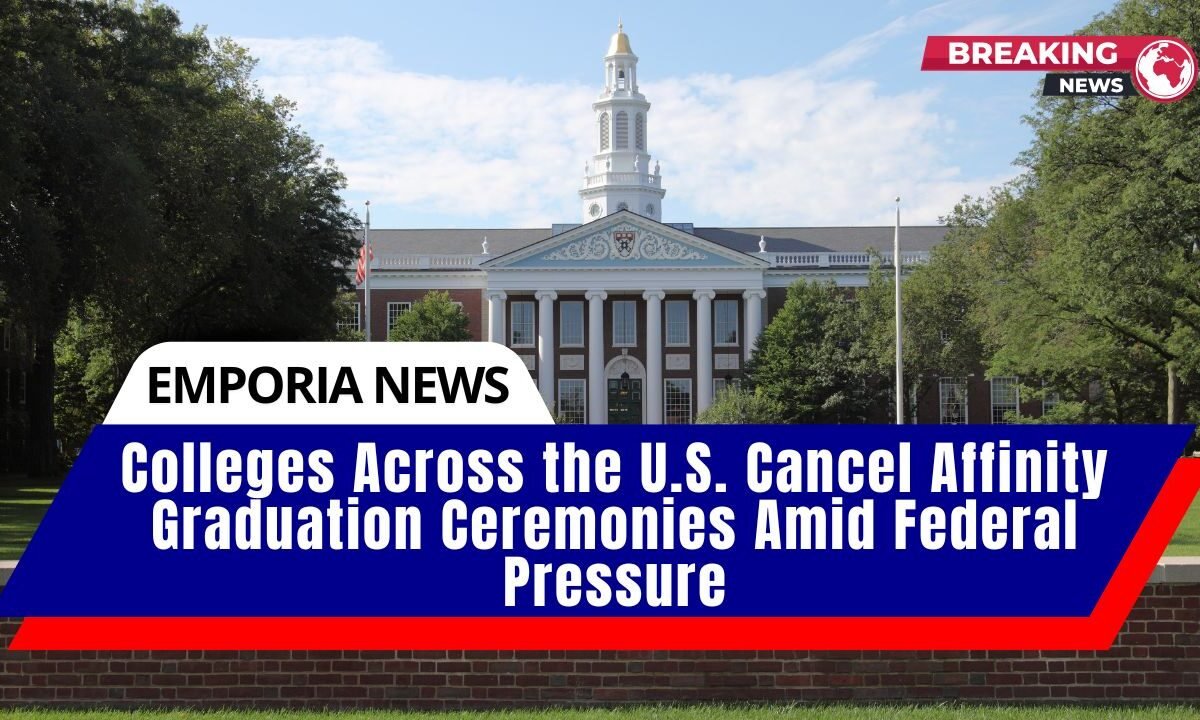Graduating students from marginalized backgrounds at institutions like Harvard University and Wichita State are facing a new reality — celebrating their achievements without institutional support for affinity graduation ceremonies.
These events, often seen as critical acknowledgments of identity and perseverance, are being canceled across the country due to shifts in federal policies and funding limitations.
Harvard Withdraws Support Amid Funding Controversy
This year, Harvard University ended its official support for all affinity-based graduation events, citing a new approach toward inclusivity.
The university stated it would no longer provide funding, venues, or staffing for end-of-year ceremonies tailored to cultural or identity groups. This move forced students and alumni to self-organize.
Despite the change, the Harvard Black Alumni Society stepped in and raised $46,000 to keep their event alive. Other groups followed suit, with students hosting independent Lavender Graduation ceremonies to honor LGBTQ+ graduates, emphasizing the deep importance of these moments for identity and recognition.
Trump-Era Orders Create National Ripple Effect
The backdrop to these cancellations includes increasing scrutiny under Trump administration directives, particularly executive orders targeting DEI (Diversity, Equity, and Inclusion) programs.
One such order halted federal funding for DEI-related activities, labeling them “radical and wasteful.” Soon after, federal agencies were directed to reconsider contracts with institutions like Harvard, potentially affecting $100 million in federal support.
Institutions like Notre Dame, Wichita State, University of Louisville, and the University of Kentucky also canceled or scaled back their cultural graduation events.
In Nevada, the Hispanic Educators Association cited financial shortfalls in its decision to cancel its Latino student celebration.
Community Support Fills the Gap
In many cases, alumni networks and local organizations have filled the void. In Arizona, the Salt River Pima-Maricopa Indian Community hosted a replacement ceremony after the Maricopa County Community Colleges District canceled its event for Indigenous students, citing new enforcement rules from the U.S. Department of Education.
Collin Skeets, a 36-year-old first-generation graduate and member of the Navajo Nation, shared how emotional it was to lose the opportunity to attend an Indigenous-focused graduation. Eventually, he was able to celebrate wearing traditional attire at the reservation-based ceremony.
“It was hard being told ‘no’ again,” Skeets said, “but the community came through, and I got to celebrate with my family.”
Affinity Ceremonies: More Than Symbolism
Experts say these events are more than symbolic. According to Dr. Jean Beaman, a sociologist at the City University of New York, affinity graduations recognize the “distinct challenges faced by minoritized students at predominantly white institutions.”
These ceremonies often reflect not just academic achievement but generational perseverance, cultural identity, and historical resilience.
Dr. Beaman criticized the wave of cancellations as a form of “anticipatory obedience” — institutions preemptively acting out of fear rather than policy requirement.
“This is a troubling shift,” she said. “Students have always led the charge for change, and organizing these events independently proves their determination.”
Despite increasing challenges, students and communities are stepping up to ensure that graduation ceremonies honoring identity and heritage continue.
Whether hosted off-campus, self-funded, or supported by tribal governments, these celebrations highlight the resilience of marginalized students.
As universities reevaluate their roles, students remain at the forefront — driving inclusive traditions forward through persistence and unity.




